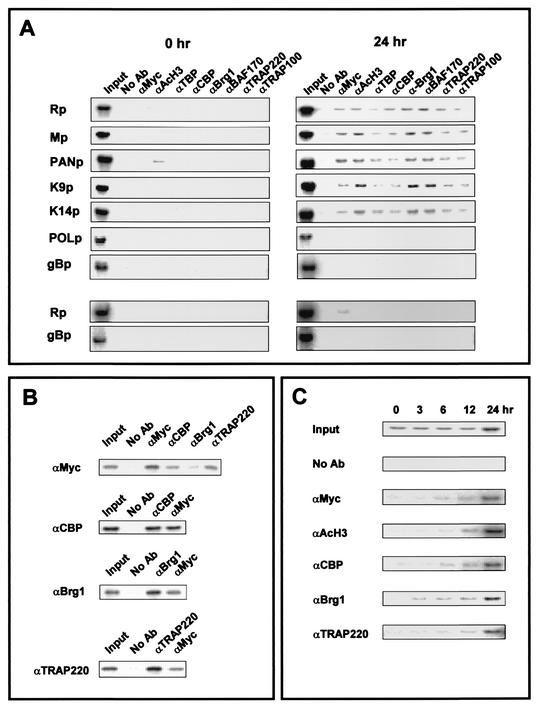FIG. 6.
Recruitment of cellular transcription cofactors to RTA-dependent promoters. (A) Chromatin immunoprecipitation assay of RTA-dependent and RTA-independent promoters. KSHV-infected TRExBCBL1-RTA cells or TRExBCBL1-RTA(ΔDD-ILQ) cells (bottom two panels) were collected without treatment or after 24 h of treatment with 1 μg of doxycycline per ml. Chromatin immunoprecipitation assays were performed with antibodies against the protein indicated at the top. PCR products corresponding to each viral promoter were generated from an aliquot (1/10) of total immunoprecipitated material (Input). (B) ReChip assay. TRExBCBL1-RTA cells were stimulated for 24 h with 1 μg of doxycycline per ml and subjected to the chromatin immunoprecipitation assay as described above. After washing the protein-G-Sepharose beads from the primary immunoprecipitation shown on the left panel, the complexes were eluted by incubation with 10 mM dithiothreitol at 37°C for 30 min and diluted to 40 times the original volume. Eluates were reimmunoprecipitated with the second antibody indicated at the top of figure, followed by PCR amplification. PCR products were generated from an aliquot (1/10) of total immunoprecipitated material (Input). (C) Time course of chromatin immunoprecipitation assay. TRExBCBL1-RTA cells were stimulated with doxycycline for 1, 3, 6, 12, and 24 h and then used for the chromatin immunoprecipitation assay as described above. PCR products were generated from an aliquot (1/10) of total immunoprecipitated material (Input).

